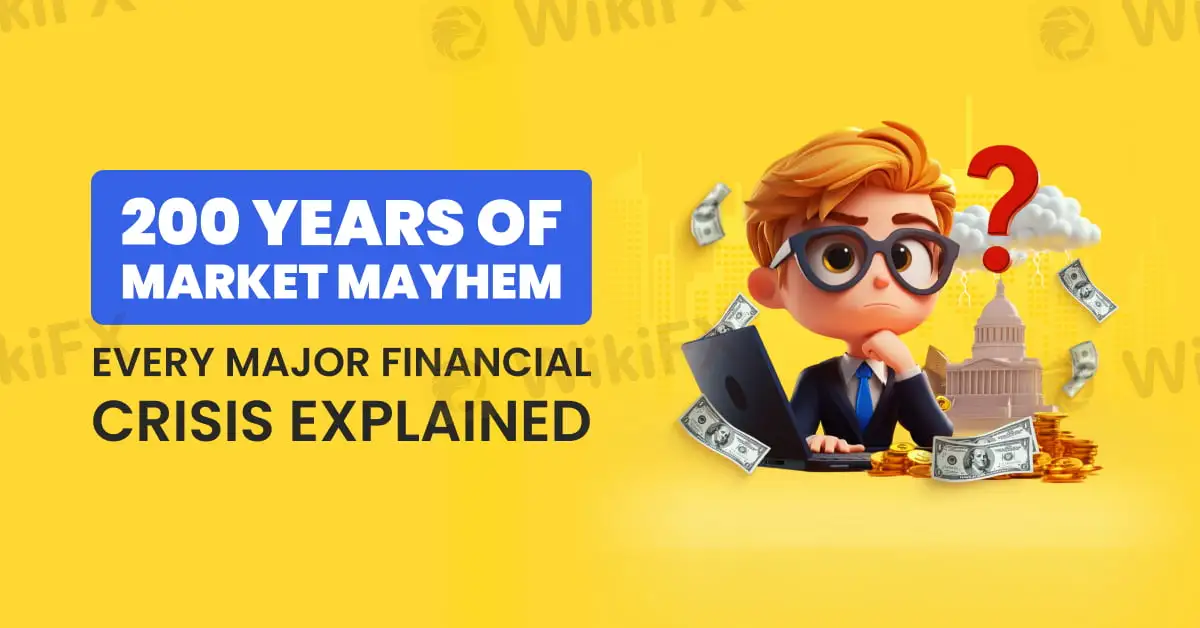Abstract:Financial crises have shaped economies for centuries, often leaving a trail of devastation in their wake. While each crisis has its own unique causes, recurring themes, such as speculation, regulatory failures, and external shocks, continue to threaten global markets. This article explores the most significant financial collapses in history, revealing the patterns that link past crises to modern financial instability.

Financial crises have shaped economies for centuries, often leaving a trail of devastation in their wake. While each crisis has its own unique causes, recurring themes, such as speculation, regulatory failures, and external shocks, continue to threaten global markets. This article explores the most significant financial collapses in history, revealing the patterns that link past crises to modern financial instability.

The first recorded financial crisis in the United States occurred in 1792, triggered by speculative trading in government bonds. A wave of panic led to bank failures, forcing the newly established U.S. financial system to stabilise through the intervention of Alexander Hamilton. Decades later, the 1837 U.S. Banking Crisis saw widespread bank failures after a speculative land boom collapsed, deepening a long economic downturn.
By 1857, a combination of rail industry overexpansion and declining European demand for U.S. goods led to another financial crash, proving that global markets were becoming increasingly interconnected. This was followed by the 1873 Long Depression, a pan-European financial crisis sparked by bank failures in Austria and the collapse of the U.S. railroad industry.

As financial markets grew, crises became more complex. The 1893 U.S. Banking Crisis saw the collapse of over 500 banks due to a failing gold standard and declining investor confidence. Decades later, the infamous 1929 Great Depression began with the Wall Street Crash, leading to mass unemployment and a prolonged economic downturn that lasted a decade.
By the 1970s, external shocks played a larger role in financial instability. The 1973 Oil Crisis was triggered by an OPEC embargo, leading to soaring fuel prices and inflation. The 1979 Second Oil Crisis compounded these problems, causing a global economic slowdown.

As global markets became more intertwined, financial crises took on a new dimension. The 1982 Latin American Debt Crisis arose when major South American economies, burdened by unsustainable debt, defaulted on their loans. The shockwaves were felt worldwide, reinforcing the risks of excessive borrowing.
The 1987 Black Monday crash saw stock markets collapse globally, with the Dow Jones losing 22% of its value in a single day—an early warning of the risks associated with computerised trading. The 1992 European Exchange Rate Mechanism Crisis followed, as speculative attacks on the British pound forced the UK to withdraw from the ERM.
By 1994, Mexicos economy was in turmoil due to unsustainable debt and investor panic, leading to the Tequila Crisis, which necessitated an emergency bailout. Three years later, the 1997 Asian Financial Crisis saw massive currency devaluations across Thailand, Indonesia, and South Korea, exposing weaknesses in emerging market economies.

The 2000 Dot-Com Bubble Burst wiped out billions in speculative internet-based stocks, underscoring the dangers of overhyped technology investments. Just eight years later, the 2008 Global Financial Crisis, driven by subprime mortgage lending and excessive risk-taking, plunged the world into a deep recession. The fallout led to sweeping banking regulations and government bailouts.
In 2010, the European Sovereign Debt Crisis emerged as countries like Greece, Portugal, and Spain struggled with debt repayment, testing the resilience of the Eurozone. Most recently, the 2020 Covid-19 Global Financial Crisis caused markets to crash as the pandemic shut down economies worldwide, prompting unprecedented fiscal stimulus and monetary interventions.

Financial crises are inevitable, but history shows that regulatory oversight, responsible investment strategies, and early intervention can mitigate their impact. As markets evolve, understanding past collapses remains crucial in preventing the next economic disaster.















